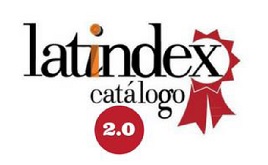Tax modifications and accrued application in the accounting and tax fields
DOI:
https://doi.org/10.53641/junta.v2i1.25Keywords:
accrued, Legislative Decree No. 1425, accounting, taxationAbstract
The various transformations that have arisen worldwide have generated a series of changes in all areas of human life and economic management is not an exception. In this field, one of the most disturbing problems is the recognition of future income that is part of the accrual principle, a situation that generates multiple confusions in its accounting and tax application. In this sense, the accrual, in the accounting field, can be understood as the birth of rights and obligations, while, in the tax field, its birth occurs from the obligation of the tax fact. Taking into account these considerations, the concern to review Legislative Decree No. 1425 arose, which was issued with the purpose of clarifying the accounting landscape for income tax purposes and granting a regulatory framework that would allow unifying criteria, for which, among other important scopes, the term “accrual” is defined for the first time. From this perspective, through this article we seek to establish the scope of tax changes for the application of the accrual principle in the accounting and tax fields.
Downloads
References
Alva, M. (2010). El gasto se devengó en el 2010 y la factura la entregaron en el 2011: ¿En qué ejercicio se considera el gasto? Actualidad Empresarial, pp. 1 - 3.Bohlander, G. y. (2011). Administración de recursos humanos. México: 14a. ed. Cengage Learning Editores S.A.
Cabanellas, G. (1993). Diccionario Jurídico Elemental. Editorial Heliasta.
Cámara de Comercio de Lima. (2009). Foro tributario: Por un sistema tributario promotor del desarrollo.
Carrillo, M. (2018). El devengado tributario y la necesidad de su definición en la Ley del Impuesto a la Renta.
Diario El Peruano. (13 de setiembre de 2018). Decreto Legislativo N° 1425. Normas Legales, págs. pp. 41 - 43.
Durán, L. y. (2017). El concepto de devengado en el Impuesto a la Renta Empresarial peruano. Suplemento Enfoque Contable de la Revista Análisis Tributario, (9), pp. 11 - 22.
Federación Internacional de Contadores. (2003). Información Financiera sobre la Bases Contable de Efectivo. New York: International Federation of Accountants.
Garzón, M. e. (2013). Innovación empresarial, difusión, definiciones y tipología. Una revisión de la literatura. Dimensión Empresarial, 11(1), pp. 45 - 60.
Gavelán, J. (2000). SISBIB. Sistema de Bibliotecas. Universidad Nacional Mayor de San Marcos.
Medrano, H. (s.f.). IPDT.
Novoa, S. (2007). El Principio de lo Devengado en la Determinación del Impuesto a la Renta de Tercera Categoría. Actualidad Empresarial, pp. 1 - 5.
Panez, J. (1993). Teoría de la contabilidad. Lima: Editorial JPM.
Reig, E. (2003). IPDT.
Tori, F. (2002). Criterio de lo devengado: indemnizaciones destinadas a reponer bienes del activo. Lima.
Downloads
Published
How to Cite
Issue
Section
License
Copyright (c) 2019 Juana García Bayona

This work is licensed under a Creative Commons Attribution 4.0 International License.








